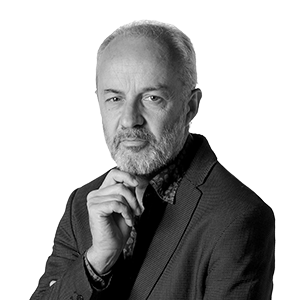Forgetfulness and forgiveness


"Humanity has never submitted to the patient and just, but always only to the great monomaniacs." This wasn't written today with Donald Trump or Vladimir Putin in mind. It was written by Stefan Zweig almost a century ago, surely thinking of Hitler but referring to the fanatic John Calvin (1509-1564), the man who transformed the Protestant Reformation initiated by Luther (a movement for spiritual and religious freedom) into a theocratic dictatorship in Geneva. Educated at the same college as Erasmus and Ignatius of Loyola, Calvin didn't profit much. From persecuted to persecutor, he tortured his society and tortured himself: he slept a maximum of four hours and ate only a meager meal a day; no distractions, no relaxation, no pleasure. The ascetic, says Zweig, "is the most dangerous type of despot."
The obfuscated Calvin—today we would call him a Taliban—went so far as to ban church bells from being rung. No more music. And he eliminated traditional festivals in a crusade against the diabolical vice of joy, in a suffocation of the will to live. In his misanthropic drift, he eventually surpassed the Catholic Inquisition: everyone was suspected of sin. He established a reign of terror. In the first five years of his reign, in tiny Geneva, 13 people were hanged, 10 were beheaded, 35 were burned, and 76 were expelled from their homes. Calvin's moral police, writes Zweig, was "as incapable as he himself of forgetting and forgiving."
And this is where the bulk of the book comes in. Castellio vs. Calví (The Second Periphery, translated into Catalan by Marc Jiménez Buzzi). Zweig revives the figure of the unjustly forgotten humanist Sebastià Castellio (1515-1563), the man who opposed Calvin and the first, before Hume or Locke, to explicitly proclaim the idea of tolerance in Europe. Castellio soon realized that the man who was supposed to be a doctor of the soul of the people had become the implacable jailer of their freedom. Both had felt called by the Protestant Reformation and had gone into exile outside of France. Calvin, a few years older, had hired him as a professor in Geneva. Once there, Castellio set out to emulate the feat of Erasmus and Luther in one: to translate the entire Bible again into Latin and French (Luther had done so into German). Calvin was suspicious. A French version validated by him already exists. He will only give him the imprimatur if he can review it first. But Castellio doesn't want to submit or give up his freedom: he hasn't fled the Catholic Inquisition to fall into another. The confrontation is on.
The next episode in the clash is the case of the Aragonese Miguel Servet, humanist, theologian, and doctor. A strong, passionate character. Luther and Calvin don't seem revolutionary enough to him. Servet feels the passion of the polemicist. He considers both Catholic and Protestant doctrine to be erroneous. He tries to convince Calvin, but all he manages is to earn his rigid and methodical hatred. First, Calvin seeks to liquidate him through the Catholic Inquisition, but fails. Then Servet, imprudent, walks into the lion's den, in Geneva. Discovered, he is imprisoned and condemned to be burned alive. His cruel death becomes a moral crossroads of the Reformation, his first "religious murder," as Voltaire would write. Castellio then writes his precious plea in favor of tolerance, the I accuse from the 16th century: Against libellum Calvini.
"Castellio knows that each era always chooses a different group of wretches to collectively unleash its accumulated hatred upon them [...] The slogans, the occasions, change, but the method of defamation, contempt, and destruction is always the same," writes Zweig. And he quotes Castellio twice: "People are so convinced of their own opinion [...] that they arrogantly despise that of others." And the immortal phrase: "Killing a man never means defending a doctrine, but killing a man." But that denunciation never saw print. Calvino managed to have Castellio brought to trial as a heretic. However, before a tragic end, weakened, Castellio died. He was 48 years old.
